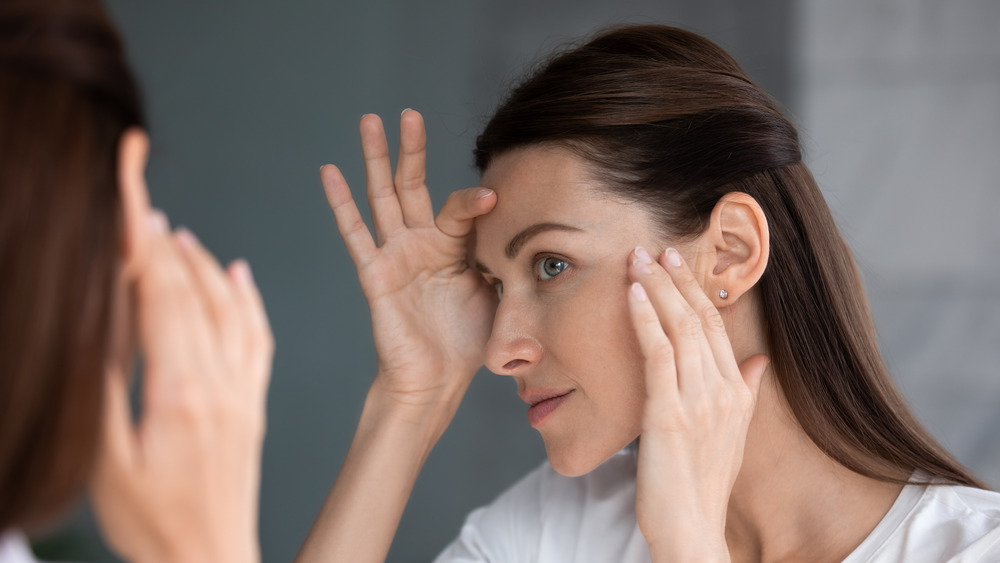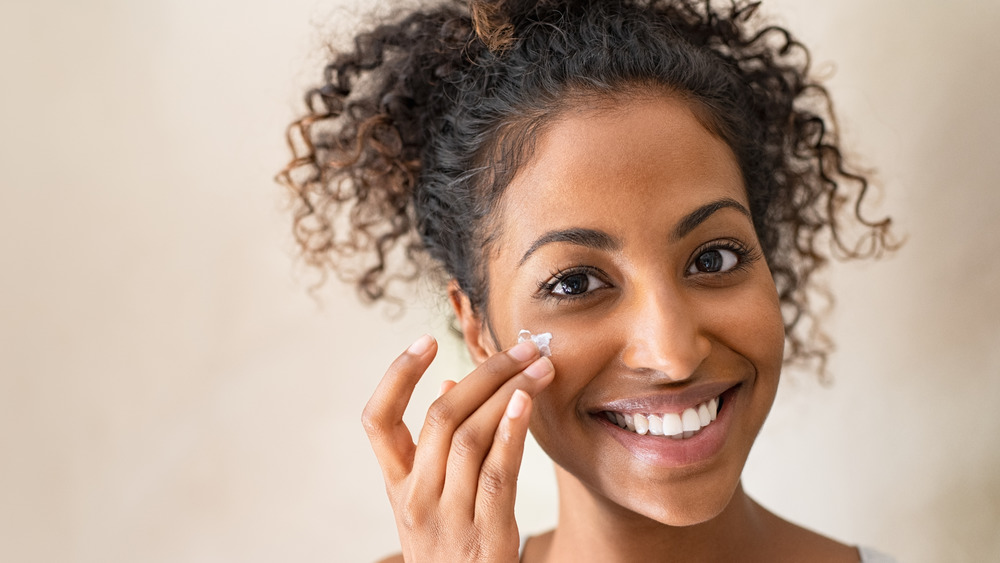Skincare Ingredients That Make You Look Older
Everyone wants to look younger. Since most of us are eager to lessen the signs of aging, we may be super susceptible to advertisements for anti-aging products that promise to take years off our appearances. According to Dr. Smita Ramanadham, double board-certified plastic surgeon, "Anti-aging skincare ingredients do live up to their name, but only if used appropriately."
In fact, she says, "If used too often and incorrectly, some of these ingredients can actually worsen the appearance of wrinkles by stripping the skin of its natural oils, causing the skin to become dry, inflamed, and sensitive." No one wants that! To avoid actually looking older as a result of your skincare routine, there are some ingredients you want to be careful when using. Because ultimately, a little goes a long way!
Two such ingredients are sulfates and alcohols, which are often found in cleansers and toners. "They are typically added to cleanse the skin and remove dirt and debris," Dr. Ramanadham explains, adding, "However, they can ultimately dry out the skin, worsening fine lines and wrinkles, and inhibiting the skin's ability to produce its own natural oils."
More skincare ingredients to steer clear of for more youthful skin
Retinoids are to be used carefully as well according to Dr. Ramanadham. "Retinols or other vitamin A derivatives are a powerhouse ingredient for anti-aging," she acknowledges, but cautions, "However, if not used correctly, they can actually irritate and worsen the appearance of your skin." The key to success is to incorporate retinols into your skincare regimen gradually, over the course of weeks or months, she told The List. "There is a true acclimation period, and if your skin isn't given time to adjust, it can become irritated and dry, leaving the skin looking dull with worsening of wrinkles," she notes, adding, "This is especially true in the delicate skin of the eyes and neck."
Another skincare ingredient to use mindfully is hydroquinone, which as Dr. Ramanadham explains, "is a skincare ingredient typically used to treat or prevent hyperpigmentation from resurfacing." She warns, "If this is not used correctly under a dermatologist or plastic surgeon's supervision, it can result in inflammation and post-inflammatory hyperpigmentation. Skin, by nature of being irritated and inflamed, can look aged."
Finally, be careful when employing harsh exfoliants on your skin, because as Dr. Ramanadham told The List, "When used excessively, they can dry out skin and cause irritation." Still, she does recommend using exfoliants, simply advising, "They should be gentle and used 2-3 times per week to remove dead skin cells without irritating the skin."

